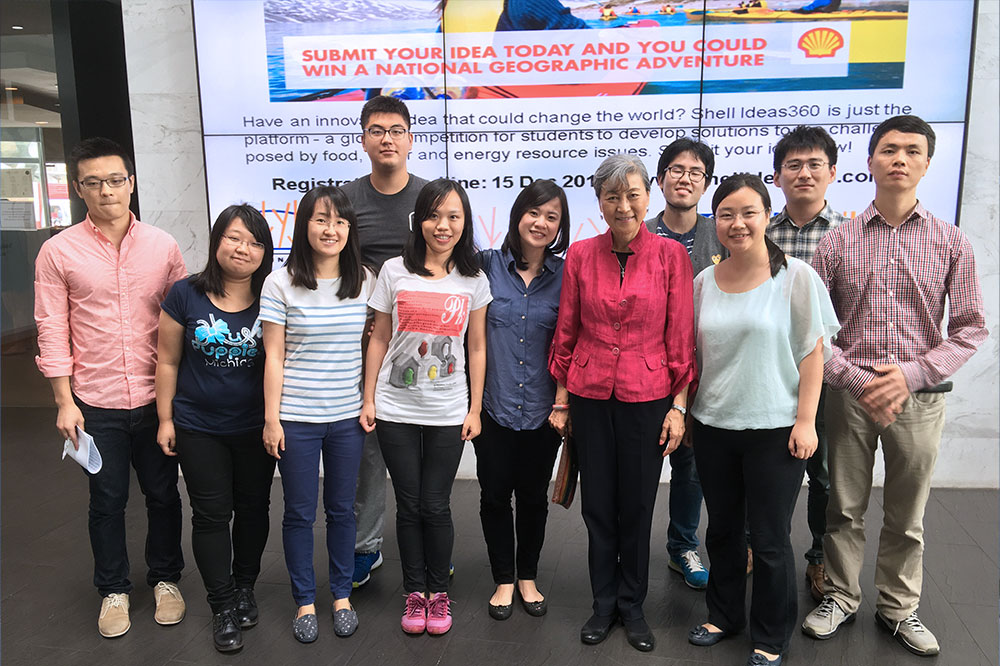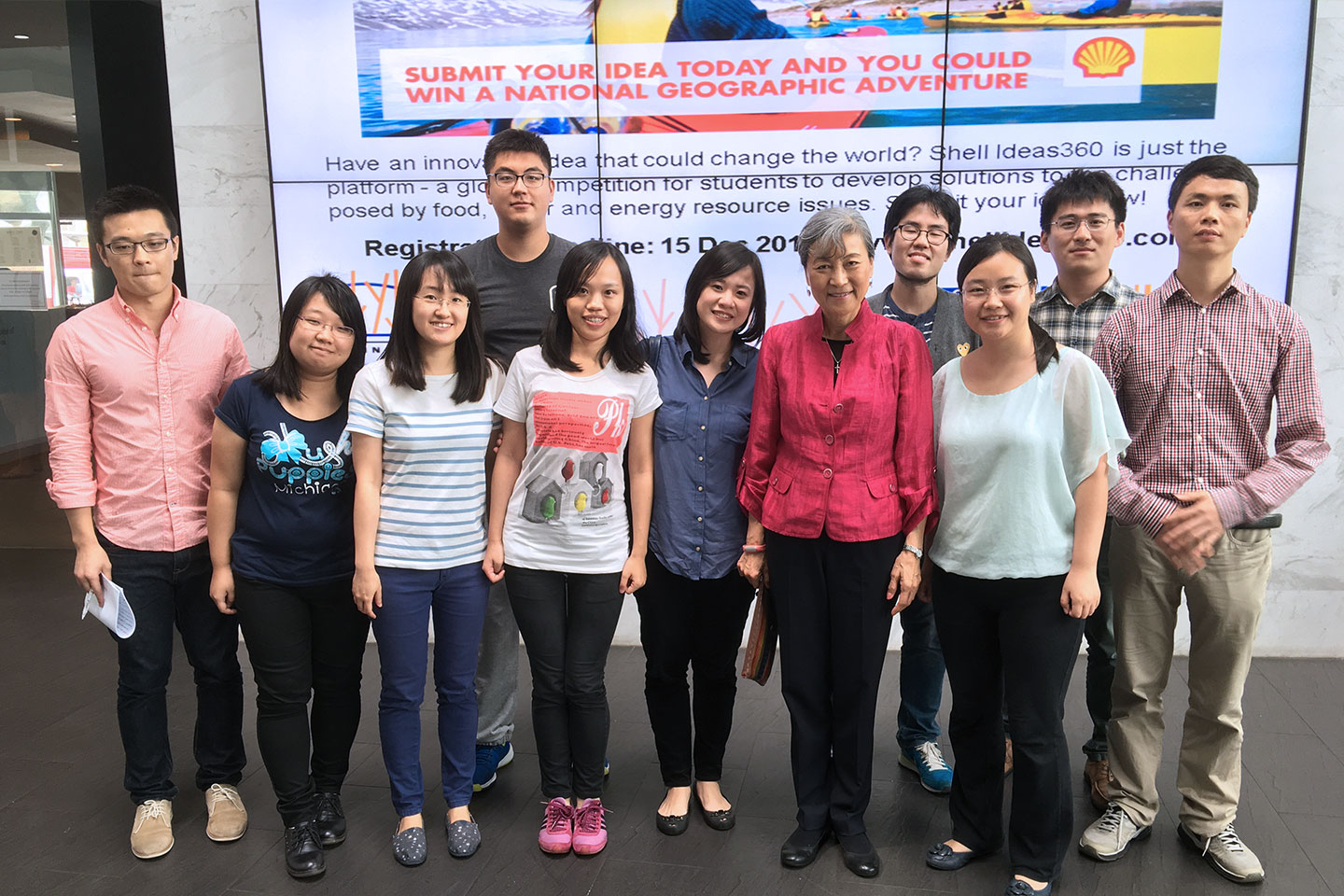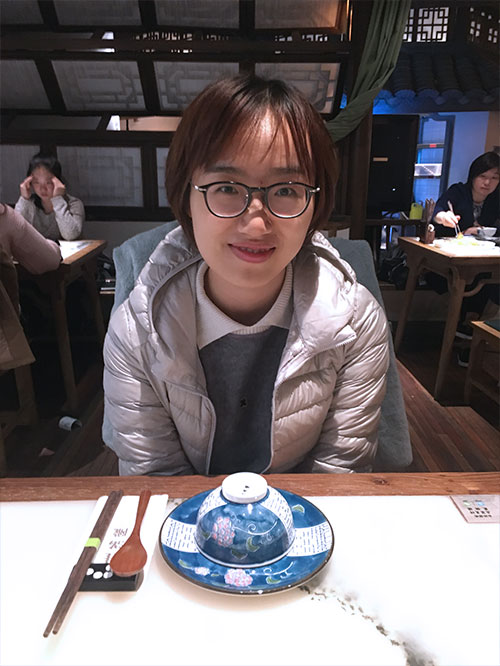Being a researcher in NUS Business School offers an unique opportunity to find solutions that will have an impact on the business landscape, according to PhD students Shanshan Huang and Tan Xiang Yan Noriko.
Winners of the best paper award at the recent PhD Research Day 2018, Shanshan and Noriko share their research inspiration and why they embarked on a PhD.
Intellectual Curiosity
Shanshan: From childhood, my dream is to become a scientist and have a PhD degree of course. I am always curious about new and fundamental knowledge. Therefore, I would love to spend my time and energy to explore new knowledge so that I want to pursue a PhD degree.
Noriko: I worked at a consulting firm before joining the PhD programme, so I had observations of the workplace dynamics. For example, people are motivated and engaged on some occasions than others. Also, they are sometimes overly stressed which harms well-being. These observations and my personal experiences made me eager to find out why different phenomena occur and what we can do to make employees work both efficiently and happily. I believe that academic research is an important and rigorous approach to answering these questions, and therefore I decided to pursue a PhD as the first step in my learning process.
A challenging yet rewarding career path
Shanshan: Since we are solving difficult and interesting problems while other people may not be able to, we discover self-values in this career path. I think this career path can provide us satisfaction and gratification while others may not.
Noriko: The essence of academic research is to generate new and meaningful knowledge. During this process, there are many possible disappointments. For example, we find it difficult to acquire the needed skills to theorise or test an idea, or study results contradict our theories and predictions. However, only with interest to become a better researcher and the curiosity to answer the questions makes the journey fulfilling.

Noriko (sixth from left) with her fellow PhD students at a lunch meeting with visiting Professor Anne Tsui from University of Notre Dame.
Why NUS Business School
Shanshan: NUS Business School provides me with the opportunity to learn new skills and broaden my views. My experience is holistic because of the guidance from my supervisors Prof Andrew Lim and Prof Wang Tong.
Noriko: I chose NUS Business School because it has a great atmosphere for academic research. Some professors actively engage in meaningful and impactful research projects and fellow PhD students who are highly motivated and skilful. Also, Singapore is a great place to stay. I have sharpened my thinking about the organisational phenomenon, accumulated knowledge about existing management theories, and learned research methods to design and conduct rigorous research
Advice to peers
Shanshan: I think the skills to learn new things quickly and communicate well with others are important to achieve success. The key is to learn some technical skills and get trained to think professionally, critically and independently.
Noriko: Academic research is about asking how and why, and then trying your best to provide answers to these questions. One has to think critically to challenge the existing knowledge in a reasonable and meaningful way, and then think systematically to provide new insights beyond what is already known- be critical and open-minded.
For Shanshan, her winning paper was “Forecasting Demand for New Products: A Hybrid Structural & Data-Driven Approach”, where she wrote that an accurate forecast is important for operational decision making, and proposed combining modelling and data-driven approaches to extract vital information from data.
Noriko received the best paper award for “Are you Gossiping about Me? The Costs and Benefits of High Workplace Gossip Prevalence”. In her paper, she suggests that gossip behaviour is a mixed blessing, its prevalence stimulates the fear of being negatively evaluated, and the consequent performance pressure heightens engagement and performance. On the other hand, she says that worrying being gossip about is stressful and may harm well-being.
To find out more about our PhD programme, please visit http://bschool.nus.edu/phd.





